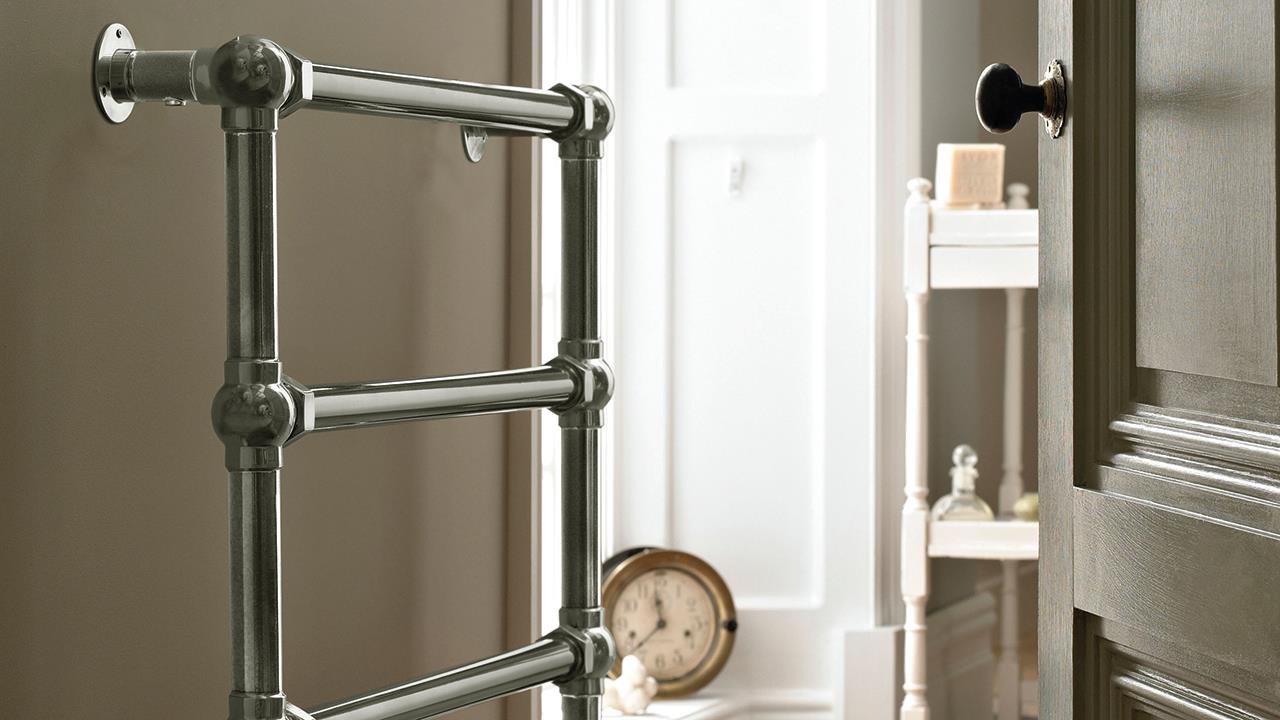

Steve Birch, Sales Director at Vogue (UK), shares his perspective on the advantages of British manufacturing and how this impacts the UK heating market going forwards.
Heating specialists hold a unique position as they guide clients through installation projects using their practical expertise and specialist knowledge to ascertain that systems are safe, efficient, and in keeping with end users’ needs.
Given supply chain disruptions due to the pandemic, and changes to longstanding arrangements with the EU as Britain adjusts to its ‘third country’ status, I think it makes sense from a logistical point of view to work with British manufacturers to ensure that clients are serviced efficiently and appropriately.
The UK’s extensive motorway network means that goods can be delivered without the worry of delays as the logjam continues at major ports. The fact that manufacturers are operating in the same time zone makes it easier to progress orders. English is still the most-spoken language in the world and widely used as a second language, so even if you are dealing with international clients and suppliers, working with a British manufacturer can help ensure that there are no barriers to communication.
Sustainability in interiors is growing in importance alongside broader environmental concerns about carbon emissions and the benefits of ‘shopping local’ and supporting trade and growth in the UK regions. The advantage of working with a British manufacturer means that a heating specialist can tick a lot of these boxes – boosting British businesses so that they can take on more staff and expand, as well as reducing the carbon footprint and fuel costs when transporting goods shorter distances. Benefits to end-users include the ability to source spare parts and upgrade equipment with greater convenience, which also helps to build a positive, customer experience for the industry as a whole.
Alongside the practicalities of avoiding language barriers and receiving enquiries in a timely manner, British companies tend not to have monthly summer shutdowns in July or August unlike some European manufacturers when routine maintenance is carried out while workers are off-site.
As heating improvements tend to be carried out in the summer when systems are not in use, clients may well appreciate knowing that replacement parts or extra support from UK manufacturers will be available all year round, pending public holidays, which will keep delays to a minimum.
Familiarity with UK housing stock, Building Regulations, and the British lifestyle means that a British manufacturer is more likely to offer products which are the ‘best fit’ with a client’s brief and will most likely help to anticipate any further requirements or questions that end-users may have.
There is huge variation between heating in the Anglosphere as the UK, the USA, Canada, and Australia have such widely differing climates, housing stock, and legal requirements, as well as in continental Europe and Scandinavia so, in my opinion, a manufacturer who has in-depth knowledge of UK consumers, heating systems, and property brings a great deal to the table.
Something, which is perhaps taken for granted today, is the wealth of knowledge and creativity in the British heating industry, which I believe is born out of the UK’s heritage as the birthplace of the Industrial Revolution and one of the first consumer-orientated societies in the world. The range of products available from British manufacturers is ideally placed to service discerning consumers who want to personalise their interiors and use their homes to make a statement rather than merely ‘keeping up with the Joneses’.
Pushing the boundaries of British design is something that has become increasingly important in the past 20 years as new generations re-discover the elegance of
Scandinavian design and the aesthetic of the late 20th century. Alongside classic heating, which is inspired by the very first radiators and towel warmers of the Victorian and Edwardian eras and found in our finest stately homes and hotels, we are also seeing a new narrative inspired by industrial shapes, colours, and sustainable options like aluminium.
The eclecticism which drives the British fashion industry has crossed over into interiors so that the days of ‘one size fits all’ heating are well and truly over.
My feeling is that, with increased focus on the home during lockdown and a heightened appreciation of aesthetics, customers will be keen to explore bespoke solutions and designer heating whether they nod more to the traditional or contemporary end of the spectrum.
If you'd like to keep up-to-date with the latest developments in the heating and plumbing industry, why not subscribe to our weekly newsletters? Just click the button below and you can ensure all the latest industry news and new product information lands in your inbox every week.